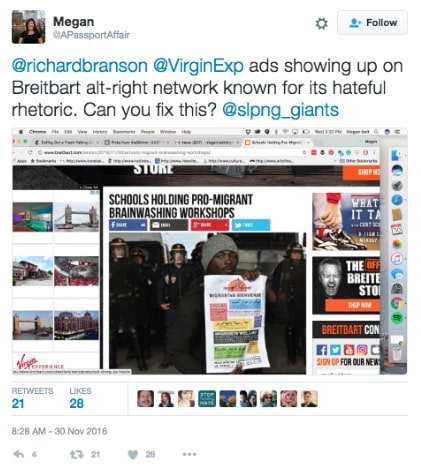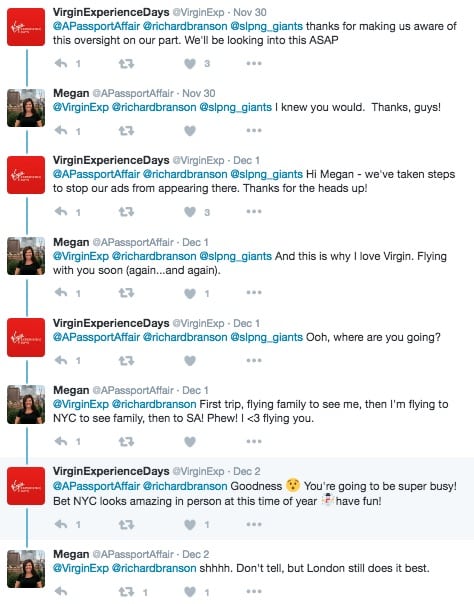Lately, many companies are being confronted with social media campaigns that call them out for advertising on conservative websites, one of the most notable currently is the far-right site Breitbart.
Breitbart is a controversial website that is notorious for what its critics call ‘fake’ news with allegations of a white, nationalist racist slant. In opposition, movements like #NoAdsforHate and Sleeping Giants (Twitter user @slpng_giants) have emerged. These viral campaigns use social media channels, particularly Twitter, to encourage companies to “stop funding hate” by blocking or removing their advertising from Breitbart News Network. They encourage users to go to Breitbart.com, take a screenshot of a company’s ad next to Breitbart content and tweet the screenshot tagging the company, to encourage companies and organizations to block their advertising.
Social media movements are highly visible and influential. These campaigns have reached countless users and have had tangible consequences. This movement, in particular, has been extremely effective with many players gaining notoriety beyond social and into mainstream media.
Some brands chose to ignore and some chose to respond the movement; both actions have been met with differing reactions. Take a look at what has happened to Kellogg’s. Companies are entitled to choose where they advertise and the public has a right to speak out and seek to influence those choices. So there’s clearly no “right” way for a brand to react to this movement. However, the Kellogg’s example demonstrates that brands and the agencies that represent them are caught in a tough place.
Whichever way you chose to react, this social media based movement provides a prime opportunity to leverage your brand’s social presence. While controversial, a conversation has been started and is open for companies to join and create a real human engagement with their audience.
When Parallel Path was confronted with and researching this issue, we found this exchange between a Twitter user and Virgin Experience…
This is a superb example of how brands can find and join existing conversations via social, even when the original exchange was negative. Let’s look at what we can learn from Virgin Experience:
- Virgin was actively monitoring their brand engagement so they were immediately aware of their mention.
- Virgin did not ignore the tweet (even though it could be construed as antagonistic), but they responded quickly.
- Most importantly, they did not let the conversation end, and instead they actively engaged and re-engaged.
When the Twitter user said “And this is why I love Virgin. Flying with you soon (again..and again).” Virgin could have dropped out but instead, they continued to ask relevant questions and gave thoughtful responses; not only increasing their social presence on Twitter but creating a personal relationship with this user.
In today’s market, brand trust is increasingly important. Social media enables your brand to be human by being authentic, developing trust and engaging with your customers. Conversations on social media are important because they allow you to build relationships. Especially if you take an interaction with the potential to turn negative and start a positive, genuine interaction, your brand gets a win!

